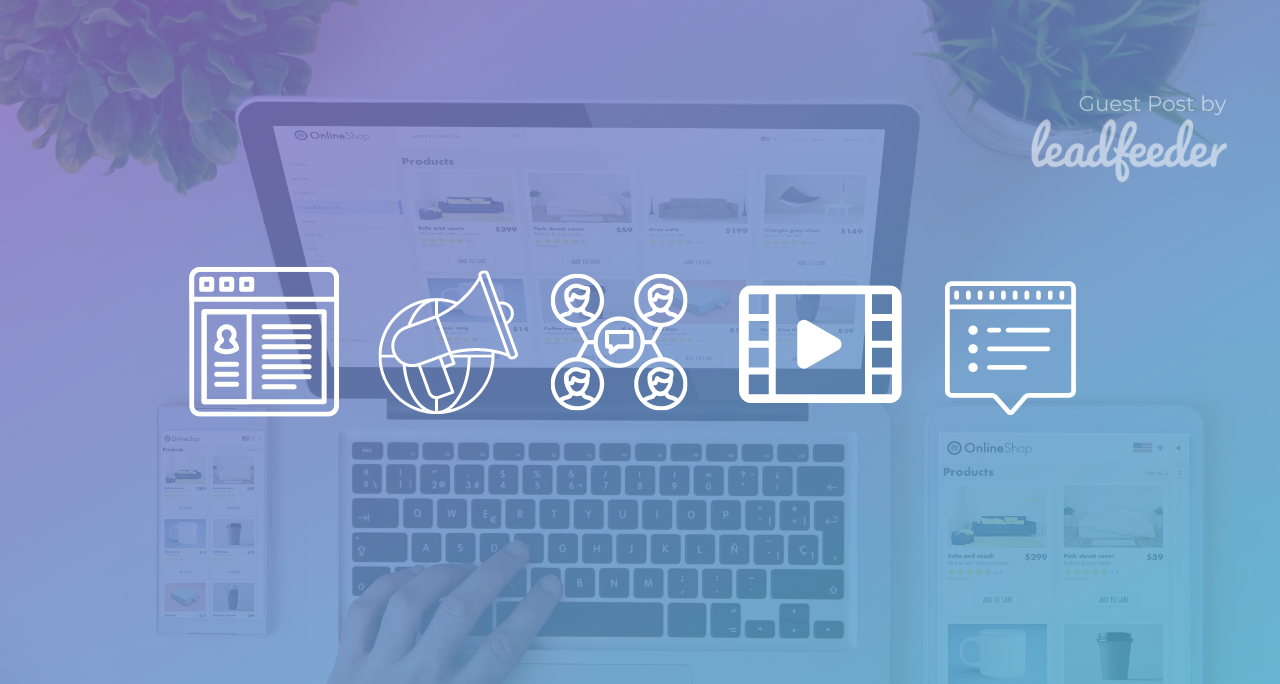Do you still trust the ‘one-size-for-all’ policy when you strategize your marketing tactics? How could a generic website cater to your customers?
In the virtual business landscape, successful brands double up their websites as powerful marketing tools. Well, your website is a lot more than a mere electronic version of your brand! You can establish a deeper affinity with your customers’ psychology with a personalized website. This is why business owners work with established professionals like Viafoura to personalize their websites.
Remember, 88% of marketers prioritize website personalization to leverage their customer experience.
Apart from representing your brand, your website showcases valuable information about your offerings. Naturally, your brand awareness is intricately integrated into website personalization. Building a loyal customer base becomes breezy when you have a personalized website to showcase your credibility.
What is website personalization?

source: emarsys.com
Each visitor on your website has some aesthetic sense and expectation. Simply defined, personalizing your website is all about tailoring this experience based on their profile.
Personalizing websites is a complex task based on previously collected data on demographics and website interactions of your visitors. Established designers consider browser language, devices, online purchase behavior, location, and other aspects while personalizing websites.
Through website tailoring, business leaders can bestow their target audience with a refined and unique experience based on their needs.
While personalizing websites, companies like Viafoura determine the elements that might appeal to your audience.
Let’s take a few examples of website personalization.
- In Netflix, users can check the percentage of a certain recommendation that matches their preferences based on their interests.
- In Amazon, users can get personalized product recommendations based on their purchase history.
- The News Feed on Facebook provides users with stories and information that would engage them.
Different forms of website personalization marketers should know

source: pinterest.com
Depending on your business objectives, experts can personalize your websites in different ways. Here are some common forms of website personalization that marketers should be aware of.
Content recommendations
Personalizing websites is a tactic that enables brands to craft a specific experience for each user. This implies that the right audience group should get the right content on your website based on their peculiar interaction style. This leverages engagement significantly as the content caters to the individual needs of your visitors.
Product recommendations
In case you own an eCommerce website, you need to recommend personalized products to your audience. Not every visitor might have the same budget, product preferences, or aesthetic sense.
By harvesting crucial information like their past purchase records, cart abandonment rates, and preferred products, you can recommend related accessories to optimize sales.
Contextual messaging

source: pinterest.com
How you interact with your visitors largely defines your brand’s stature and image. In a market where physical interaction is absent, your messages must be calculated and contextual.
Most importantly, businesses can engage with potential buyers at specific stages of their purchase journey through contextual messaging. In the process, you can assist them in using your website till a visitor becomes a customer!
Predictive navigation
This is yet another powerful form of website customization. After all, it’s illogical to expect that your visitors would scan the entire website to find the information they need. Therefore, it’s logical to grasp their browsing intent and provide the most relevant content or links. This significantly streamlines their journey based on their respective browsing histories.
How can a personalized website strengthen brand loyalty?
A study reveals that 77% of your customers would be ready to select or pay for your offerings if you succeed in personalizing their experience. These figures speak tons about the relevance of personalizing your website for your audience. Let’s take a detailed look into the connection between brand loyalty and personalized browsing experience.
1. A deeper understanding of your customers

source: pinterest.com
When your customers realize that you dedicate time to understanding their preferences, they start trusting your brand. For instance, you should personalize the CTA or furnish relevant information based on related searches for your visitors.
Sometimes, websites request specifications like industry and job titles from their visitors. Accordingly, they customize the information based on certain parameters to make it relevant. As your visitors derive value from the furnished information, your brand loyalty gets a boost.
2. Making customers feel valued
Do you welcome your customers with a personalized birthday wish with their name in the message on a special day? These subtle tactics can work immensely in your brand’s favor. Over time, you can convert loyal customers to brand advocates.
With a personalized website, you can make your visitors feel valued. This ensures that they would recommend your brand to people within their circle. If you run customer loyalty programs, make sure to make website personalization a priority.
3. Store your visitor’s progress

source: rockcontent.com
There’s a feature that website developers use to help visitors store their progress. This implies that even if any of your customers need to leave your portal during browsing, they can return any time later and continue from the point where they left.
Whether it’s as simple as filling up a form or making an online purchase, storing the progress ensures that they take less time to complete the task. This strategy works wonders for eCommerce websites, preventing cart abandonment.
4. Reduce email bombardment
It’s good to invest in a powerful email marketing strategy. However, you can refrain from bombarding your customers with emails and newsletters containing ‘new content’ alerts.
With website personalization, you can provide a more holistic browsing experience to loyal customers. In case there are any new services or products to interest your customers, they should get to know it from your website itself.
Endnote
Apart from building brand loyalty, a personalized website goes a long way in establishing your business. For instance, loyal customers would perceive your business as a distinct entity, standing apart from other brands. This essence of credibility will also help you emerge as a trusted advisor, whom loyal customers would turn to while making a decision.
Naturally, this would ease up the process of renewals and upselling easier later on. Ultimately, website personalization can strengthen your revenue stream and refine your brand image, propelling your business amidst competition.





